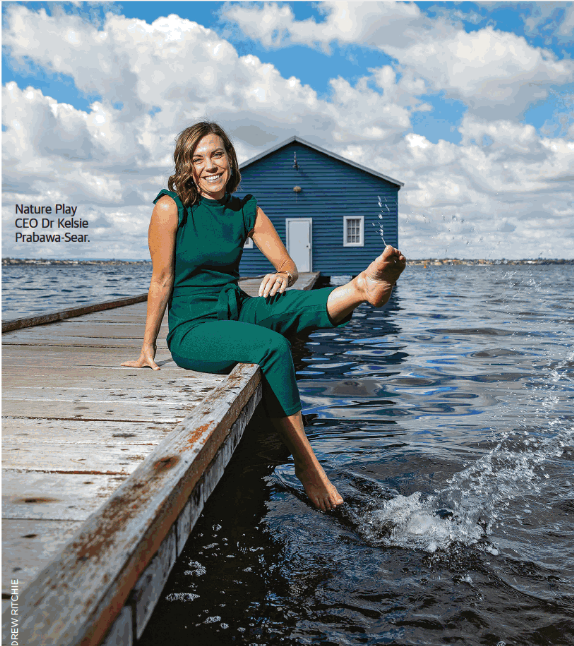by Jade Jurewicz
A recent Royal Children’s Hospital of Melbourne Child Health poll revealed 94 per cent of parents recognise the necessity of play for a child’s health, including physical wellbeing and brain development.
Despite noting its significance, less than half of Australian kids play outside most days and 80 per cent of adults would like their children to spend more time outdoors.
RISKY PLAY
Nature Play WA chief executive officer Dr Kelsie Prabawa-Sear has heard all the concerns around the concept of risky play.
The not-for-profit charity works to support the mental and physical health of kids through outdoor play, including risky play, which she is quick to point out doesn’t equate to being dangerous.
***
“The way we break it down to make it easy to think about is that risky play is something that kids can work out for themselves, whether they’re capable of it and whether they want to take the risk,” she explains.
This can be things like climbing on equipment or pulling themselves up onto a branch.
“Whereas something that’s dangerous, they don’t have the capacity to make that call,” Dr Prabawa-Sear says.
“If equipment is broken or something is not secured properly, usually a kid won’t be able to see that danger. So they can’t assess it.
“When we’re talking about risky play, it’s stuff that challenges us but doesn’t put us in danger.”
Risky play, compared to structured activities such as team sport, enables children to develop better decision and negotiation-making skills and assists with risk assessment and analysis. It also encourages better communication.
Read the full article in The West Australian

